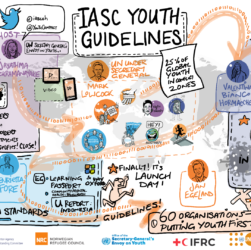Promoting a sense of belonging is essential to building strong relationships in education. When students feel like they are part of a community, they are more likely to be engaged, motivated, and successful in their learning.


Promoting a sense of belonging is essential to building strong relationships in education. When students feel like they are part of a community, they are more likely to be engaged, motivated, and successful in their learning.

Education is more than just the transfer of knowledge from teacher to student. It is a complex and multifaceted process that involves the development of strong relationships between teachers, students, and the wider community. These relationships are the foundation upon which successful education is built, and they play a critical role in shaping students’ academic, social, and emotional outcomes.

The United Nations Charter for the Rights of the Child is a significant achievement in the global effort to protect and promote children’s rights. Adopted by the United Nations General Assembly on November 20, 1989, the Charter is a legally binding agreement that sets out the fundamental rights of every child, regardless of race, gender, ethnicity, or social status.

The Inter-Agency Standing Committee (IASC) Guidelines are principles and standards that provide a framework for coordinating humanitarian assistance in complex emergencies. The IASC is a unique forum of the United Nations (UN) and non-UN humanitarian agencies established in 1992 to improve the effectiveness of humanitarian response in crises. The Guidelines were first published in 2005 and have been updated several times.

The Core Humanitarian Standards (CHS) is a set of principles and guidelines developed by the humanitarian sector to ensure that humanitarian assistance is provided consistently, accountable, and effectively. The CHS was developed by the Sphere Project, a collaboration of humanitarian agencies and experts, and was launched in 2014. The CHS is based on the belief that people affected by crises have the right to life with dignity and receive assistance tailored to their needs.

The United Nations General Assembly adopted the United Nations Charter for the Rights of the Child in 1989. It has been ratified by every country except for the United States of America, Somalia and South Sudan. There are several reasons why the US has not signed the UN Charter for the Rights of the Child.